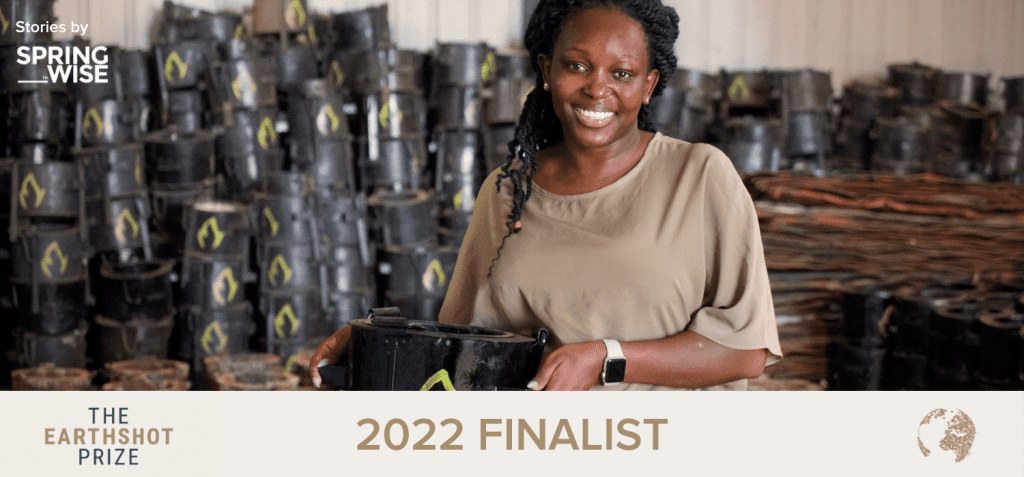Carbon dioxide is not the only pollutant we need to worry about. Carbon emissions may harm our planet, but emissions of nitrogen oxides, ozone, and particulate matter harm our health. According to the World Health Organization, almost everyone on earth – 99 per cent of the global population to be precise – breathes air that contains high levels of pollutants. And the combined effects of air pollution, both outside and within the home, are associated with 7 million premature deaths each year.
Thankfully, the 2022 finalists of The Earthshot Prize are showing how innovation can help us to clean the air we breathe.

PROVIDING LOW-INCOME FAMILIES WITH CLEAN, SAFE, AND AFFORDABLE COOKSTOVES
Household air pollution is a major threat to public health – particularly in low- and middle-income countries. In total, the World Health Organization reports that one-third of the global population cooks using either open fires or inefficient stoves. This releases pollutants that cause a range of health issues from strokes and heart disease to lung cancer. Mukuru Clean Stoves designs and manufactures safer, cleaner cookstoves for low-income families in East Africa. Read more

REPLACING DIESEL GENERATORS ON CONSTRUCTION SITES
What powers all the cranes, hoists, and welders you see on a construction site? The answer is almost always diesel. Most sites run on noisy, polluting generators – one of the reasons why the construction sector is responsible for 11 per cent of global carbon emissions. These diesel generators also damage the health of local people – particularly in the tightly packed urban areas where most projects take place. Now, one startup has developed a battery energy system that reduces the noise, carbon emissions, and air pollution generated by building projects. Read more

ACCELERATING THE ELECTRIC VEHICLE TRANSITION IN EAST AFRICA
The International Energy Agency estimates that, globally, 13 per cent of new cars sold in 2022 will be electric. But in the transition to electric vehicles (EVs), sub-Saharan Africa faces challenges. These include an unreliable electricity supply, low vehicle affordability, and the dominance of used vehicles. At the same time, transport makes up 10 per cent of Africa’s total greenhouse gas emissions, so there is a need for change. Now, one company is providing electric motorbikes and buses tailored to the needs of the African market. Read more
Written by: Matthew Hempstead
To keep up with the latest sustainable innovations, sign up to our free newsletters or email info@springwise.com to get in touch.

